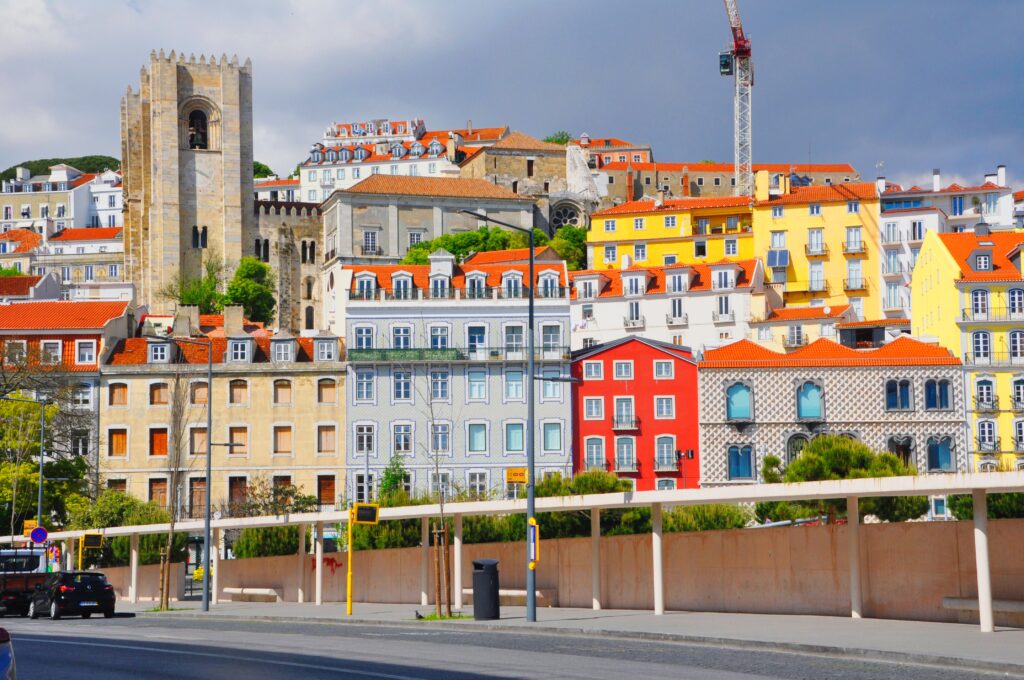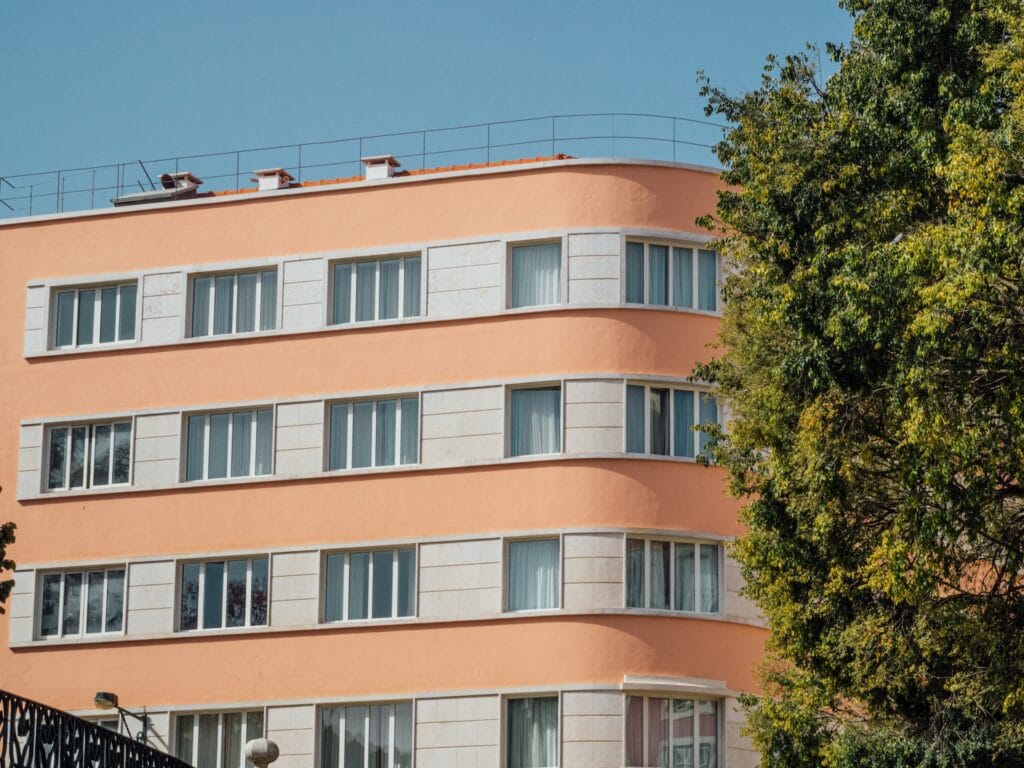Condominium meetings play a crucial role in the management of shared properties in Portugal. These gatherings bring co-owners together to discuss important matters, make collective decisions, and ensure the smooth operation of common areas.
From budget approvals to maintenance projects and rule enforcement, condominium meetings provide a structured way for residents to voice their concerns and influence how the property is managed.
In this article, we’ll explore how these meetings work, their legal framework, and what property owners need to know to participate effectively.
What Are Condominium Meetings?
Condominium meetings are official gatherings of co-owners in a shared building or residential complex where important decisions about the management and maintenance of common areas are made. These meetings provide a platform for discussing financial matters, approving budgets, setting maintenance plans, and resolving any disputes or concerns among residents.
In Portugal, condominium meetings are legally required and follow specific regulations outlined in the Portuguese Civil Code. They are typically led by the condominium administrator and involve voting on key issues such as service contracts, renovation projects, and rule enforcement. Attending and actively participating in these meetings is essential for co-owners to ensure their interests are represented and that the condominium is well-managed.

Legal Framework: Condominium Meetings Under Portuguese Law
Condominium meetings in Portugal are governed by the Portuguese Civil Code (Articles 1431-1438-D), which sets out the rights and obligations of property co-owners. These regulations define how meetings should be organized, how decisions are made, and the responsibilities of the condominium administrator.
The law mandates that an Ordinary General Meeting be held at least once a year to approve financial reports, budgets, and discuss general management issues. Extraordinary Meetings can be convened if urgent matters arise. Meetings must follow a formal process, including advance notice to co-owners, proper record-keeping, and adherence to voting procedures. Decisions taken in these meetings are legally binding, and co-owners who disagree with them have the right to challenge them in court within 60 days.
Types of Condominium Meetings and Their Purpose
There are three main types of condominium meetings in Portugal, each serving a specific function:
Ordinary General Meeting (Assembleia Geral Ordinária)
- Held at least once a year.
- Approves the condominium’s annual budget and financial statements.
- Discusses maintenance plans, service contracts, and general building management.
- Elects or reaffirms the condominium administrator.
Extraordinary General Meeting (Assembleia Geral Extraordinária)
- Called when urgent or special matters arise.
- Addresses unexpected repairs, legal disputes, or rule changes.
- Can be requested by co-owners representing at least 25% of property shares.
Initial Condominium Meeting (Assembleia de Constituição do Condomínio)
- Held when a new condominium is established.
- Approves initial regulations, financial contributions, and administrator selection.

How to Convene a Condominium Meeting in Portugal
To ensure that condominium meetings are legally valid, they must be convened following these steps:
Who Can Call a Meeting?
- The Condominium Administrator is responsible for organizing and calling meetings.
- If the administrator fails to do so, co-owners representing at least 25% of property shares can request one.
Meeting Notification Requirements
- A written notice must be sent to all co-owners at least 10 days in advance.
- The notice must include the agenda, date, time, location, and supporting documents.
- Notifications can be sent via registered mail, email (if agreed upon), or delivered in person.
Quorum and Attendance
- At least 51% of the total ownership shares must be represented for decisions to be valid.
- If quorum is not met, a second meeting can be scheduled, where decisions can proceed regardless of attendance.
Key Decisions Made in Condominium Meetings
During a condominium meeting, co-owners discuss and vote on various matters, including:
- Financial Planning: Approving the annual budget and setting condominium fees.
- Building Maintenance: Authorizing repairs, renovations, and improvement projects.
- Service Contracts: Choosing cleaning, security, and maintenance providers.
- Regulations & Rules: Setting or modifying condominium rules and policies.
- Legal Actions: Deciding on lawsuits or disputes involving the condominium.
All decisions must be documented in meeting minutes (ata da reunião) and signed by attendees to ensure they are legally enforceable.

Rights and Responsibilities of Co-Owners in Meetings
Co-owners have both rights and obligations when participating in condominium meetings:
Rights of Co-Owners
- Voting Rights: Each co-owner votes according to their percentage of property ownership.
- Requesting Meetings: If needed, they can call for an Extraordinary General Meeting.
- Challenging Decisions: If a decision is illegal or unfair, they can challenge it in court within 60 days.
- Access to Financial Records: Co-owners have the right to review the condominium’s financial statements.
Responsibilities of Co-Owners
- Attending Meetings: Participation is essential to ensure fair representation.
- Paying Condominium Fees: Owners must contribute to maintenance and other shared expenses.
- Following Rules: Compliance with condominium regulations and decisions is required.
The Role of the Condominium Administrator in Meetings
The Condominium Administrator plays a key role in ensuring that meetings are properly organized and decisions are implemented. Their responsibilities include:
- Scheduling and Notifying co-owners about meetings.
- Preparing the Agenda and ensuring relevant documents are available.
- Chairing the Meeting or ensuring it runs smoothly.
- Recording Minutes and keeping legal records of decisions made.
- Executing Decisions and managing contracts, finances, and legal matters.
If the administrator fails to fulfill these duties, co-owners can request their removal and replacement in a meeting.

Voting and Decision-Making in Condominium Meetings
1. Quorum and Voting Power
Decisions in condominium meetings are made based on a quorum, which refers to the minimum percentage of property ownership required for a valid vote. Each co-owner’s vote is weighted according to their ownership percentage in the building.
- First Meeting Quorum: At least 51% of ownership shares must be represented.
- Second Meeting Quorum: If the first meeting fails to meet the quorum, a second meeting can take place where decisions are valid regardless of attendance.
2. Approval Thresholds for Decisions
Different types of decisions require different approval thresholds:
- Simple Majority (51%) – Used for general matters like budget approvals and minor maintenance.
- Two-Thirds Majority (66%) – Required for significant changes, such as alterations to common areas or major renovations.
- Unanimous Approval (100%) – Necessary for fundamental changes, such as modifying the condominium’s legal framework or selling shared property.
3. Meeting Minutes and Legal Documentation
- The meeting minutes (ata da reunião) must document all discussions and voting outcomes.
- These minutes must be signed by attendees and kept as an official record.
- Decisions made in the meeting become legally binding unless challenged within 60 days.

Find Your Dream Property with Us
Portugal Investment Properties is your gateway to smart real estate investments in Portugal, offering savvy investors access to an exclusive collection of carefully curated properties.
Whether you’re searching for your dream home or a prime investment opportunity in Portugal’s prestigious market, we provide more than just listings – experience a personalized journey tailored to your aspirations.
Begin your journey to discover your perfect Portuguese retreat. Contact us today!
Looking to Invest in Portugal?
Explore our newest listings below!
Frequently Asked Questions About Condominium Meetings in Portugal
Who is responsible for organizing condominium meetings in Portugal?
The Condominium Administrator is responsible for organizing and convening meetings. However, if the administrator fails to do so, co-owners representing at least 25% of the property’s shares can request a meeting.
How often must a condominium meeting be held?
At least one Ordinary General Meeting per year is required to approve budgets, review expenses, and discuss property management matters. Additional Extraordinary Meetings can be called when urgent issues arise.
How are condominium meetings notified?
A written notice must be sent to all co-owners at least 10 days before the meeting, specifying the agenda, date, time, location, and relevant documents. The notice can be sent via registered mail, email (if agreed upon), or delivered in person.
What is the quorum for decision-making in condominium meetings?
For decisions to be valid, at least 51% of ownership shares must be represented. If this quorum is not met, a second meeting can be scheduled, where decisions can be made regardless of attendance.
How is voting conducted in condominium meetings?
Each co-owner’s vote is weighted according to their ownership percentage in the condominium. Some decisions require a simple majority (51%), while more significant matters may need a two-thirds (66%) or unanimous (100%) vote.
What types of decisions are made during condominium meetings?
Common decisions include:
- Financial approvals (budgets, condominium fees, and expenses).
- Maintenance and repair projects (renovations, security improvements, and common area upgrades).
- Changes to condominium regulations (rules on pets, parking, noise, etc.).
- Hiring service providers (cleaning, security, and administrative services).
Can a co-owner challenge a decision made in a condominium meeting?
Yes. If a co-owner disagrees with a decision, they can legally challenge it within 60 days if it violates condominium regulations or Portuguese law.
What happens if a co-owner does not attend the meeting?
If a co-owner cannot attend, they can appoint a representative (proxy) to vote on their behalf. If they do not participate, decisions made in the meeting still apply to them.
What role does the Condominium Administrator play in meetings?
The administrator is responsible for:
- Organizing meetings and sending notifications.
- Preparing and presenting financial reports.
- Enforcing decisions made by co-owners.
- Keeping official records of meeting minutes.
What are meeting minutes, and why are they important?
Meeting minutes (ata da reunião) are the official record of discussions and decisions made during the meeting. They must be signed by attendees and stored as a legal document. These minutes can be used as evidence in legal disputes or financial audits.
